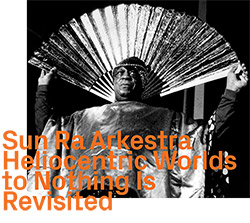
The two volumes of "Heliocentric Worlds", recorded 7 months apart in 1965, represent perhaps one of greatest chapters in Sun Ra's legacy, bringing together his immense orchestration skills with future-leaning free jazz, allowing his players expanse inside disciplined compositions that reflect on both space and the then-new freedom explored by jazz soloists.
In Stock
Quantity in Basket: None
Log In to use our Wish List
Shipping Weight: 3.00 units
EU & UK Customers:
Discogs.com can handle your VAT payments
So please order through Discogs
Sample The Album:
Sun Ra-electronic chelesta, piano, tuned bongos, tympani
John Gilmore-tenor saxophone, percussion, tympani
Marshall Allen-piccolo, alto saxophone, bells, spirit cymbals, flute, percussion
Robert Cummings-bass clarinet, clarinet, percussion, wood blocks
Danny Davis-flute, alto saxophone, percussion
Pat Patrick-baritone saxophone, percussion
Teddy Nance-trombone
Walter Miller-trumpet
Bernard Pettaway-bass trombone
Chris Capers-trumpet
Ronnie Boykins-double bass
Jimmy Johnson-[Jimhmi Johnson] percussion, tympani
Roger Blank-percussion
Click an artist name above to see in-stock items for that artist.
UPC: 752156110323
Label: ezz-thetics by Hat Hut Records Ltd
Catalog ID: ezz-thetics 1103
Squidco Product Code: 28568
Format: CD
Condition: New
Released: 2020
Country: Switzerland
Packaging: Cardboard Gatefold
Recorded in New York City, New york, on April 20th, and November 16th, 1965.
"You know you're getting older — or just plain old — when you find yourself saying to younger people, "I'm hearing a lot about your rights, but what about your responsibilities?" or "Yes, freedom is a great thing, but what happened to discipline?" It's a valuable question, even if it takes grey hair to ask it. Freedom is one of the great fetishes of jazz, perhaps of modernism as a whole. A certain evolutionary model of the music has free jazz as a kind of logical destination, what happens when ad libbing is all there is left. But there are other models. We like to think of martinet bandleaders as a thing of the past: Benny Goodman, Duke Ellington in his proprietorial pomp, even James Brown, who'd fine musicians onstage for missing a beat. We're a little uncomfortable when biographers write about John Coltrane's fierce business brain or, coming straight to the music you are holding at the moment Sun Ra's turnkey discipline. The concept of the "Ra gaol", the toughest and most secure gaol there ever was, didn't come up in a critic's review; it was the boast of the man himself, the man born Herman Pool Blount in 1914 who renamed himself Le Sony'r Ra to espouse a new cosmic philosophy and radical revision of the swing and bop traditions.
I've heard Marshall Allen, present day keeper of the Sun Ra legacy, describe the leader's working method. It sounds demanding, and borderline capricious: arrangements changed at the shortest notice, parts reassigned to other instruments so that the whole complexion and direction of the music is changed, elements dropped without explanation. Hindsight often lends a warmer colouring to behaviour and personalities that were challenging-to-unpleasant at the time, but what is striking about the memories of the early Sun Ra Arkestra (and I managed to speak with the great John Gilmore about it all a few years before his death in 1995, as well as other Arkestra members) is how fondly and how seriously they committed to the disciplines of Sun Ra's music.
There are parallels — improbable though it might sound — between the Alabaman-Chicagoan and the French-Russian Nadia Boulanger, who, believing that she had no talent for composition herself, became one of the great music teachers of the 20th century. I thought of her quite spontaneously when listening again to the compositions on Heliocentric Worlds of Sun Ra. Volume 1 was the first Sun Ra record I ever owned and perhaps the first I ever heard. There is the same neoclassical simplicity and directness of line. The elaboration all comes from sound colour. There is the same resistance to volume as a dramatic device. Boulanger disliked fortissimo from an orchestra, in the same way that she didn't bellow at unworthy students; she simply told them they were no use and should give up. One of the things that strikes me about Sun Ra's discography, and since Heliocentric Worlds I have built up an obsessive's library of the stuff, is how very rarely, and always tellingly, he used sheer noise to make a dramatic point.
With Sun Ra, one always felt one had learned something; not the glib insights of a TED talk or the well-worn orthodoxy of the oldest professor in the department, but rather something that genuinely turned the head and reorganised thinking. I still get that from listening to Heliocentric Worlds ... No need of a lumpy distinction between "head" music and "heart" music. This is music that makes you think. It also conjures up a very specific time in American culture. The space race was heating up. Vietnam was heating up. The day Heliocentric Worlds, Volume 2 was recorded, a space craft was launched from earth that was to become the first to reach another planet (as opposed to moon or satellite). Unfortunately, perhaps, it was a Soviet rather than American craft, but it still meant that the solar system, which had gone through Ptolemaic, Copernican, Galilean and the modernist versions, was suddenly existential in a new way, part of the universe reachable by human means. In June, between the two Heliocentric Worlds sessions, an American man, Ed White, had exited Gemini 4 and actually walked in space, not in that nonsensical and unscientific vacuum we call "zero gravity", which is a classic misnomer, but freed from the bounds of earth for a moment and able to look down on our complex, beautiful little planet unhampered by wind or cold or bodily weight. NASA was always unimaginative in its choice of astronauts, picking the fit ones, good-looking ones and the ones least likely to cause embarrassment at a press conference. Imagine if they had sent Herman Sonny Blount up there, or back up there, as he might have insisted. What a different view of America and the world it dominated, he might have seen.
Of all the labels that have attached to his work over the years — Afrofuturism, experimental music, avant-garde, neo-swing — the one that makes most sense is "space music". It's also the one that most often misleads. It isn't all about flying saucers and alien civilisations, but it is about space, which is the dimension in which music functions. Has any composer/arranger ever used it more effectively? Listen again to Heliocentric Worlds ... but without dwelling on the scientistic or sci-fi title, and you'll hear — and see — what I mean ... Brian Morton, December 16th, 2019
Artist Biographies
• Show Bio for Sun Ra "Sun Ra (born Herman Poole Blount, legal name Le Sony'r Ra; May 22, 1914 - May 30, 1993) was an American jazz composer, bandleader, piano and synthesizer player, poet and philosopher known for his experimental music, "cosmic philosophy", prolific output, and theatrical performances. He was inducted into the Alabama Jazz Hall of Fame in 1979. For much of his career, Ra led "The Arkestra", an ensemble with an ever-changing name and flexible line-up. Born and raised in Alabama, Blount would eventually become involved in the 1940s Chicago jazz scene. He soon abandoned his birth name, taking the name Sun Ra (after Ra, the Egyptian God of the Sun) and developing a complex persona and mythology that would make him a pioneer of Afrofuturism: he claimed he was an alien from Saturn on a mission to preach peace, and throughout his life he consistently denied any ties to his prior identity. His widely eclectic and exploratory music would eventually touch on virtually the entire history of jazz, ranging from swing music and bebop to free jazz and fusion, and his compositions ranged from keyboard solos to big bands of over 30 musicians. From the mid-1950s until his death, Ra led the musical collective The Arkestra (which featured artists such as Marshall Allen, John Gilmore, June Tyson throughout its various iterations). Its performances often included dancers and musicians dressed in elaborate, futuristic costumes inspired by ancient Egyptian attire and the space age. Though his mainstream success was limited, Sun Ra was a prolific recording artist and frequent live performer, and remained both influential and controversial throughout his life for his music and persona. He is now widely considered an innovator; among his distinctions are his pioneering work in free improvisation and modal jazz and his early use of electronic keyboards. Over the course of his career, he recorded dozens of singles and over one hundred full-length albums, comprising well over 1000 songs, and making him one of the most prolific recording artists of the 20th century. Following Sun Ra's death in 1993, the Arkestra continues to perform." ^ Hide Bio for Sun Ra • Show Bio for John Gilmore "John Gilmore (September 28, 1931 – August 19, 1995) was an avant-garde jazz saxophonist known for his tenure with keyboardist/bandleader Sun Ra from the 1950s to the 1990s. Gilmore grew up in Chicago and played clarinet from the age of 14. He took up the tenor saxophone while serving in the United States Air Force from 1948 to 1952, then pursued a musical career, playing briefly with pianist Earl Hines before encountering Sun Ra in 1953. For the next four decades, Gilmore recorded and performed almost exclusively with Sun Ra. This was puzzling to some, who noted Gilmore's talent, and thought he could be a major star like John Coltrane or Sonny Rollins. Despite being five years older than Gilmore, Coltrane was impressed with his playing, and took informal lessons from Gilmore in the late 1950s. Coltrane's epochal, proto–free jazz "Chasin' the Trane" was inspired partly by Gilmore's sound. In 1957 he co-led with Clifford Jordan a Blue Note date that is regarded as a hard bop classic: Blowing In from Chicago. Horace Silver, Curly Russell, and Art Blakey provided the rhythm section. In the mid-1960s Gilmore toured with the Jazz Messengers and he participated in recording sessions with Paul Bley, Andrew Hill (Andrew! and Compulsion), Pete La Roca (Turkish Women at the Bath), McCoy Tyner (Today and Tomorrow) and a handful of others. In 1970 he co-led a recording with Jamaican trumpeter Dizzy Reece. His main focus throughout, however, remained with the Sun Ra Arkestra. Gilmore's devotion to Sun Ra was due, in part, to the latter's use of harmony, which Gilmore considered both unique and a logical extension of bebop. Gilmore had stated that Sun Ra was "more stretched out than Monk" and that "I'm not gonna run across anybody who's moving as fast as Sun Ra ... So I just stay where I am." Gilmore occasionally doubled on drums and also played bass clarinet until Sun Ra hired Robert Cummings as a specialist on the latter instrument in the mid-1950s. However, tenor sax was his main instrument and Gilmore himself made a huge contribution to Sun Ra's recordings and was the Arkestra's leading sideman, being given solos on almost every track on which he appeared. In the Rough Guide to Jazz, Brian Priestley says: Many fans of jazz saxophone consider him to be among the greatest ever, his fame shrouded in the relative anonymity of being a member of Sun Ra's Arkestra. His "straight ahead post-bop" talents are exemplified in his solo on the Arkestra's rendition of "Blue Lou," as seen on Mystery, Mr. Ra. After Sun Ra's 1993 death, Gilmore led Ra's Arkestra for a few years before his own death from emphysema. Marshall Allen then took over the Arkestra leadership." ^ Hide Bio for John Gilmore • Show Bio for Marshall Allen "Marshall Belford Allen (born May 25, 1924) is an American free jazz and avant-garde jazz alto saxophone player. He also performs on flute, oboe, piccolo, and EVI (an electronic valve instrument made by Steiner, Crumar company). Allen is best known for his work with eccentric keyboardist/bandleader Sun Ra, having recorded and performed mostly in this context since the late 1950s, and having led Sun Ra's Arkestra since 1993. Critic Jason Ankeny describes Marshall as "one of the most distinctive and original saxophonists of the postwar era." Marshall Allen was born in Louisville, Kentucky. During the Second World War he enlisted in the 92nd Infantry Division and was stationed in France. Allen studied alto saxophone in Paris and played in Europe with Art Simmons and James Moody. He is best known for his mastery of pyrotechnic effects on the alto - he has said that he "wanted to play on a broader sound basis rather than on chords" (1971 interview with Tam Fiofori cited in). The opportunity came through his long association with Sun Ra, with whom he performed almost exclusively from 1958 to Ra's death in 1993, although he did record outside the Arkestra, notably with Paul Bley's group in 1964 and with Olatunji's group during the mid-1960s. Critic Scott Yanow has described Allen's playing as "Johnny Hodges from another dimension". Since the departure of Sun Ra and John Gilmore, Allen has led the Arkestra, and has recorded two albums as their bandleader. In May 2004, Allen celebrated his 80th birthday on stage with the Arkestra, as part of their performance at the Ninth Vision Festival in New York City. Allen gave another performance on his birthday in 2008 at Sullivan Hall in New York City. Allen often appears in NYC-area collaborations with bassist Henry Grimes and has also participated in the "Outerzone Orchestra" together with Francisco Mora Catlett, Carl Craig and others in an appreciation of Sun Ra's music." ^ Hide Bio for Marshall Allen • Show Bio for Robert Cummings "Robert Cummings: Bass clarinet player with the Sun Ra Arkestra from 1963 until 1971. In groups: The Dave Brubeck Octet, The Sun Ra Arkestra." ^ Hide Bio for Robert Cummings • Show Bio for Danny Davis "Danny Davis was mainly an alto saxophone player and long-time member of the Sun Ra Arkestra, spanning a period from the early '60s to the late '80s. He is also heard on albums on the Japanese Fool label, and with Takehisa Kosugi & Peter Kowald on the FMP label." ^ Hide Bio for Danny Davis • Show Bio for Pat Patrick "To describe the phenomenal musical background of musician, composer, arranger "Pat" Patrick could fill several pages. His versatility combined with a distinctly individual sound has enhanced groups led by Erskine Hawkins, Sun Ra, Leon Thomas, Cab Calloway, Earl Hines, Horace Henderson, James Moody, Cootie Williams, Duke Ellington and Thelonius Monk to mention a few. His musical education includes study under Captain Walter Dyett at Du Sable High, Willy Randall of the original Earl Hines Band, Clark Terry and Wilson Jr. College in Chicago. Pat is the winner of the Downbeat TDWR (Talent Deserving of Wider Recognition) 1971 critics poll and fifth in the Downbeat "Established Talent" critics poll in 1972. Honours in the Popular Readers poll are also to his credit. Not only has he had several of his compositions recorded, but has composed music for a number of plays and television. He has recorded with Sun Ra, James Moody, Quincy Jones, Mongo Santamaria, Olatunji and John Coltrane among others. Pat Patrick is co-founder of the Baritone Saxophone Retinue. As composer, bandleader, and full-time member of the Sun Ra Arkestra, Pat Patrick was a visionary musician whose singular contribution to the jazz tradition has not yet been fully recognised. As well holding down the baritone spot in the Arkestra for 35 years, Patrick played flute and alto, composed in both jazz and popular idioms, and was a widely respected musician, playing with Duke Ellington, Eric Dolphy, Thelonious Monk and John Coltrane, with whom he appeared on Africa/Brass. But he is best known for his crucial contributions to key Sun Ra recordings including Angels and Demons at Play, Jazz in Silhouette and Nubians of Plutonia, among dozens of others. As a bandleader, Patrick only released one LP - the almost mythical Sound Advice, recorded with his Baritone Saxophone Retinue, a unique gathering of baritone saxophone masters including Charles Davis and Rene Mclean. First issued in 1977 on Sun Ra's legendary Saturn Records imprint, Sound Advice is a deephued exploration of this special instrument, a lost masterpiece of Arkestrally-minded Ellingtonia where higher adepts of the lower cosmic tones are heard in rare conference." ^ Hide Bio for Pat Patrick • Show Bio for Teddy Nance Teddy Nance was a trombonist with The Sun Ra Arkestra from 1963 into the 1990s. ^ Hide Bio for Teddy Nance • Show Bio for Walter Miller "Walter Miller - Born : February 07, 1920 in Birmingham, Alabama; Died : March 28, 2004 in Cambridge, Massachusetts. American jazz trumpeter and influential anthropologist. Played with : "Sonny Blount Band", Sun Ra (1962-1966 & 1978-1982) and others." ^ Hide Bio for Walter Miller • Show Bio for Bernard Pettaway "Bernard Pettaway: Trombonist with the Sun Ra Arkestra during the '60s." ^ Hide Bio for Bernard Pettaway • Show Bio for Chris Capers "Chris Capers: Trumpet player who performed with the Sun Ra Arkestra during the mid-'60s, again in 1976 and also in 1990." ^ Hide Bio for Chris Capers • Show Bio for Ronnie Boykins "Ronnie Boykins (December 17, 1935 - April 20, 1980) was a jazz bassist and is best known for his work with pianist/bandleader Sun Ra, although he had played with such disparate musicians as Muddy Waters, Johnny Griffin, and Jimmy Witherspoon prior to joining Sun Ra's Arkestra. He joined the Arkestra during the Chicago period, travelled with them to Canada and then to New York City. Boykins has been described as "the pivot around which much of Sun Ra's music revolved for 8 years". This is especially pronounced on the key recordings from 1965 (The Magic City, The Heliocentric Worlds of Sun Ra, Volume One and The Heliocentric Worlds of Sun Ra, Volume Two) where the intertwining lines of Boykins' bass and Ra's electronic keyboards provide the cohesion. He was a regular member of Sun Ra's band from 1958 until 1966, and occasionally thereafter up to 1974. Like his fellow Sun Ra bandmates, John Gilmore and Pat Patrick, Boykins attended Chicago's DuSable High School and studied under its famed music teacher "Captain" Walter Dyett. He also studied with Ernie Shepard, who would later work with Duke Ellington. Before joining Ra, Boykins had joined with a trombonist friend to open a private club-The House of Culture-with the intent of promoting black culture. Boykins' arco solo on Sun Ra's "Rocket No. 9 Take Off for Planet Venus" from 1960 may be the first recorded example of the bass being played in a horn-like manner within a relatively free context, predating similar work by Alan Silva and David Izenzon. Boykins worked with both free and straight-ahead musicians. In 1962, he recorded with the hard bop tenor saxophonist Bill Barron and, the next year, with pianist Elmo Hope. Boykins worked with tenor saxophonist Archie Shepp's New York Contemporary Five in 1964. Boykins left Ra in 1966, ostensibly to pursue more lucrative opportunities; Ra had a difficult time finding a replacement, at times settling for playing his own bass lines on keyboard. In the late '60s, he formed his own group, the Free Jazz Society, which included the pianist John Hicks. In the '70s, Boykins played with the Melodic Art-tet, a cooperative free jazz ensemble that also included drummer Roger Blank, saxophonist Charles Brackeen, and trumpeter Ahmed Abdullah. In 1975, the bassist led a session for ESP Disk that produced his sole LP as a leader, The Will Come, Is Now. In 1979 he played with Steve Lacy and Dennis Charles on New York Capers and Quirks. In the course of his career, Boykins also worked with Mary Lou Williams, Marion Brown, Sarah Vaughan, and Hajj Daoud Haroon, among others. He died of a heart attack in 1980 at the age of 44." ^ Hide Bio for Ronnie Boykins • Show Bio for Jimmy Johnson "Jimmy Johnson, real name James Leroy Johnson, Jr. American drummer and percussionist, born January 20, 1930 in Philadelphia, Pennsylvania.Best known for his work with Duke Ellington And His Orchestra (1959-1963), then became a studio musician in New York where he has performed with The Sun Ra Arkestra, Percy Faith, George Benson, Ben E. King, Jimmy Castor, Mongo Santamaria, Yusef Lateef, Carly Simon and many others." ^ Hide Bio for Jimmy Johnson • Show Bio for Roger Blank "Roger Blank (born December 19, 1938, New York City) is an American jazz drummer. Blank's grandfather played saxophone and his father William Blank was a trumpeter who had performed with Cootie Williams. Blank worked with Hank Mobley in Harlem for several years and studied under Charlie Persip. He worked with Sun Ra starting in 1964 and recorded several times with him. He worked extensively on the New York jazz scene in the 1960s and 1970s; he played with and was influenced by Ornette Coleman, and helped found a group called the Melodic Art-Tet in 1971 which was devoted to playing in Coleman's harmolodic style. This group also included Charles Brackeen, Ahmed Abdullah, William Parker, and Ronnie Boykins. Other associations included work with Bill Barron, Don Cherry, John Coltrane, Dennis Charles, Walt Dickerson, Kenny Dorham, Frank Foster, Charles Greenlee, John Hicks, Ken McIntyre, Pharoah Sanders, Archie Shepp, and Charles Tolliver. He relocated to Atlanta in the 1980s and led an ensemble there, but moved back to New York in the 1990s, where he lived in the Williamsburg neighborhood." ^ Hide Bio for Roger Blank
7/1/2025
Have a better biography or biography source? Please Contact Us so that we can update this biography.
Gilmore is known for two rather different styles of tenor playing. On performances of a straight ahead post-bop character (which include many of those with Sun Ra), he runs the changes with a fluency and tone halfway between Johnny Griffin and Wardell Gray, and with a rhythmic and motivic approach which he claims influenced Coltrane. On more abstract material, he is capable of long passages based exclusively on high-register squeals. Especially when heard live, Gilmore was one of the few musicians who carried sufficient conviction to encompass both approaches.
7/1/2025
Have a better biography or biography source? Please Contact Us so that we can update this biography.
7/1/2025
Have a better biography or biography source? Please Contact Us so that we can update this biography.
7/1/2025
Have a better biography or biography source? Please Contact Us so that we can update this biography.
Have a better biography or biography source? Please Contact Us so that we can update this biography.
7/1/2025
Have a better biography or biography source? Please Contact Us so that we can update this biography.
7/1/2025
Have a better biography or biography source? Please Contact Us so that we can update this biography.
7/1/2025
Have a better biography or biography source? Please Contact Us so that we can update this biography.
7/1/2025
Have a better biography or biography source? Please Contact Us so that we can update this biography.
7/1/2025
Have a better biography or biography source? Please Contact Us so that we can update this biography.
7/1/2025
Have a better biography or biography source? Please Contact Us so that we can update this biography.
7/1/2025
Have a better biography or biography source? Please Contact Us so that we can update this biography.
7/1/2025
Have a better biography or biography source? Please Contact Us so that we can update this biography.
Track Listing:
1. Heliocentric 4:14
2. Outer Nothingness 7:38
3. Other Worlds 4:34
4. The Cosmos 7:27
5. Of Heavenly Things 5:31
6. Nebulae 3:20
7. Dancing In The Sun 1:55
8. The Sun Myth 17:47
9. A House Of Beauty 4:46
10. Cosmic Chaos 14:51
Hat Art
Improvised Music
Jazz
Free Improvisation
Sun Ra
Large Ensembles
NY Downtown & Metropolitan Jazz/Improv
Jazz Reissues
Staff Picks & Recommended Items
Top Sellers for 2020 by Customer Sales
Jazz & Improvisation Based on Compositions
Search for other titles on the label:
ezz-thetics by Hat Hut Records Ltd.


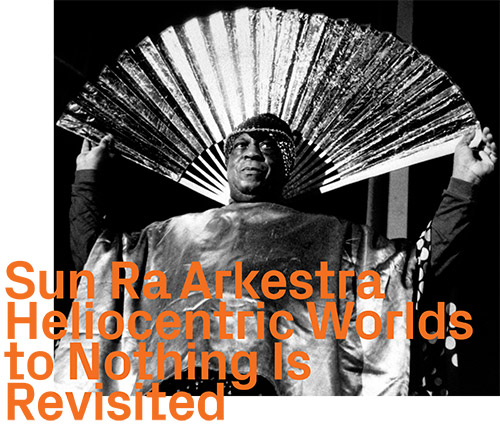
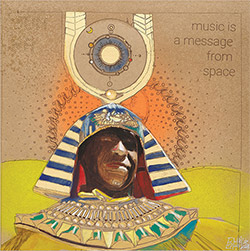
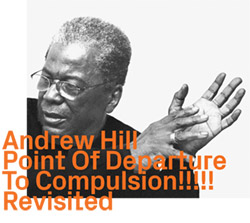
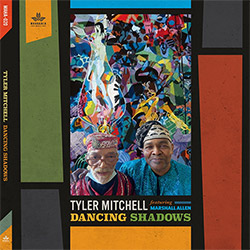
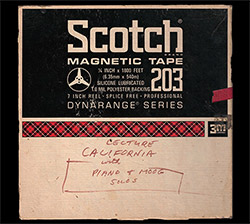



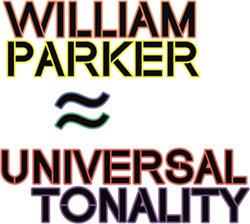
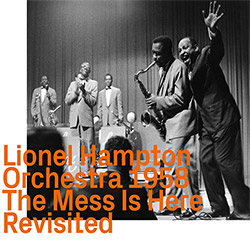


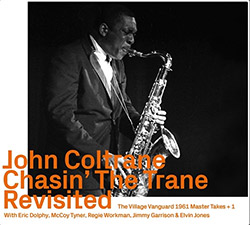
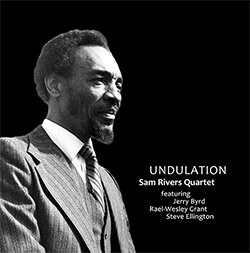
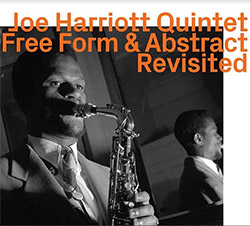

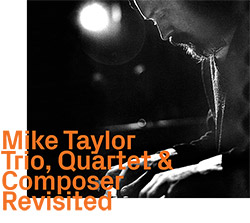
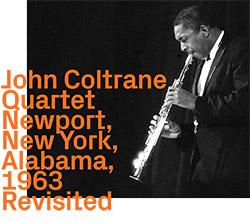


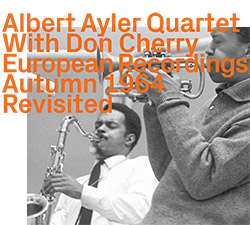

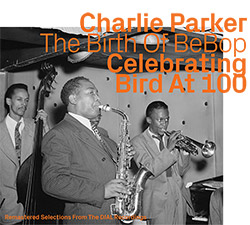
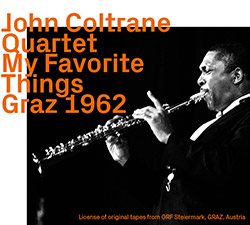
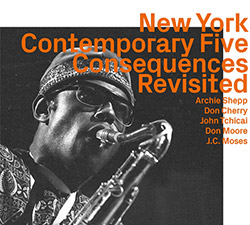

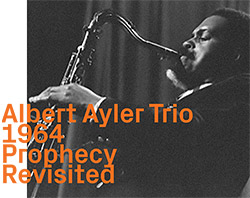










![Deupree, Jerome / Sylvie Courvoisier / Lester St. Louis / Joe Morris: Canyon [2 CDs]](https://www.teuthida.com/productImages/misc4/36404.jpg)


![Eternities: Rides Again [CASSETTE]](https://www.teuthida.com/productImages/misc4/36247.jpg)

![Lopez, Francisco: Untitled (2021-2022) [2 CDs]](https://www.teuthida.com/productImages/misc4/36438.jpg)




![Eventless Plot | Haarvol: The Subliminal Paths [CASSETTE + DOWNLOAD]](https://www.teuthida.com/productImages/misc4/36232.jpg)












![Eventless Plot | Francesco Covarino: Methexis [CASSETTE + DOWNLOAD]](https://www.teuthida.com/productImages/misc4/36231.jpg)



![Das B (Mazen Kerbaj / Mike Majkowski / Magda Mayas / Tony Buck): Love [VINYL]](https://www.teuthida.com/productImages/misc4/36329.jpg)



![Hemphill Stringtet, The: Plays the Music of Julius Hemphill [VINYL]](https://www.teuthida.com/productImages/misc4/36409.jpg)



![Halvorson, Mary Septet: Illusionary Sea [2 LPS]](https://www.teuthida.com/productImages/misc4/17952.jpg)






![Money : Money 2 [2 CDs]](https://www.teuthida.com/productImages/misc4/35894.jpg)




![Klinga, Erik: Elusive Shimmer [VINYL]](https://www.teuthida.com/productImages/misc4/36258.jpg)
![CHANGES TO blind (Phil Zampino): Volume 9 - I Wave on a Fine Vile Mist [CD + DOWNLOAD]](https://www.teuthida.com/productImages/misc4/36061.jpg)

![Wallmart / Rubbish: Asset Protection [split CD]](https://www.teuthida.com/productImages/misc4/35900.jpg)


![+Dog+: The Family Music Book Vol. 5 [2 CDs]](https://www.teuthida.com/productImages/misc4/35897.jpg)
![Kuvveti, Deli : Kuslar Soyledi [CASSETTE w/ DOWNLOAD]](https://www.teuthida.com/productImages/misc4/36107.jpg)

![Nakayama, Tetsuya: Edo Wan [CASSETTE w/ DOWNLOAD]](https://www.teuthida.com/productImages/misc4/36105.jpg)




![Yiyuan, Liang / Li Daiguo: Sonic Talismans [VINYL]](https://www.teuthida.com/productImages/misc4/35957.jpg)
![Brown, Dan / Dan Reynolds: Live At The Grange Hall [unauthorized][CASSETTE]](https://www.teuthida.com/productImages/misc4/36245.jpg)








![Palestine, Charlemagne / Seppe Gebruers: Beyondddddd The Notessssss [VINYL]](https://www.teuthida.com/productImages/misc4/36206.jpg)
![Palestine, Charlemagne / Seppe Gebruers: Beyondddddd The Notessssss [NEON GREEN VINYL]](https://www.teuthida.com/productImages/misc4/36207.jpg)

![Laubrock, Ingrid: Purposing The Air [2 CDs]](https://www.teuthida.com/productImages/misc4/35639.jpg)

![Yoko, Ono / The Great Learning Orchestra: Selected Recordings From Grapefruit [2 CDs]](https://www.teuthida.com/productImages/misc4/35841.jpg)









![Zorn, John / JACK Quartet: The Complete String Quartets [2 CDs]](https://www.teuthida.com/productImages/misc4/35609.jpg)

![Lonsdale, Eden: Dawnings [2 CDs]](https://www.teuthida.com/productImages/misc4/35480.jpg)



![Sorry For Laughing (G. Whitlow / M. Bates / Dave-Id / E. Ka-Spel): Rain Flowers [2 CDS]](https://www.teuthida.com/productImages/misc4/35985.jpg)

![Rolando, Tommaso / Andy Moor : Biscotti [CASSETTE w/ DOWNLOADS]](https://www.teuthida.com/productImages/misc4/36106.jpg)


![Electric Bird Noise / Derek Roddy: 8-10-22 [CD EP]](https://www.teuthida.com/productImages/misc4/35970.jpg)








![Elephant9 : Mythical River [VINYL]](https://www.teuthida.com/productImages/misc4/34624.jpg)



![Elephant9 with Terje Rypdal: Catching Fire [VINYL 2 LPs]](https://www.teuthida.com/productImages/misc4/35355.jpg)
![Deerlady (Obomsawin, Mali / Magdalena Abrego): Greatest Hits [VINYL]](https://www.teuthida.com/productImages/misc4/34876.jpg)







![Surplus 1980: Illusion of Consistency [CD]](https://www.teuthida.com/productImages/misc4/35069.jpg)
![Staiano, Moe: Away Towards the Light [VINYL + DOWNLOAD]](https://www.teuthida.com/productImages/misc4/35037.jpg)
![Coley, Byron: Dating Tips for Touring Bands [VINYL]](https://www.teuthida.com/productImages/misc4/17906.jpg)

![Lost Kisses: My Life is Sad & Funny [DVD]](https://www.teuthida.com/productImages/misc4/lostKissesDVD.jpg)